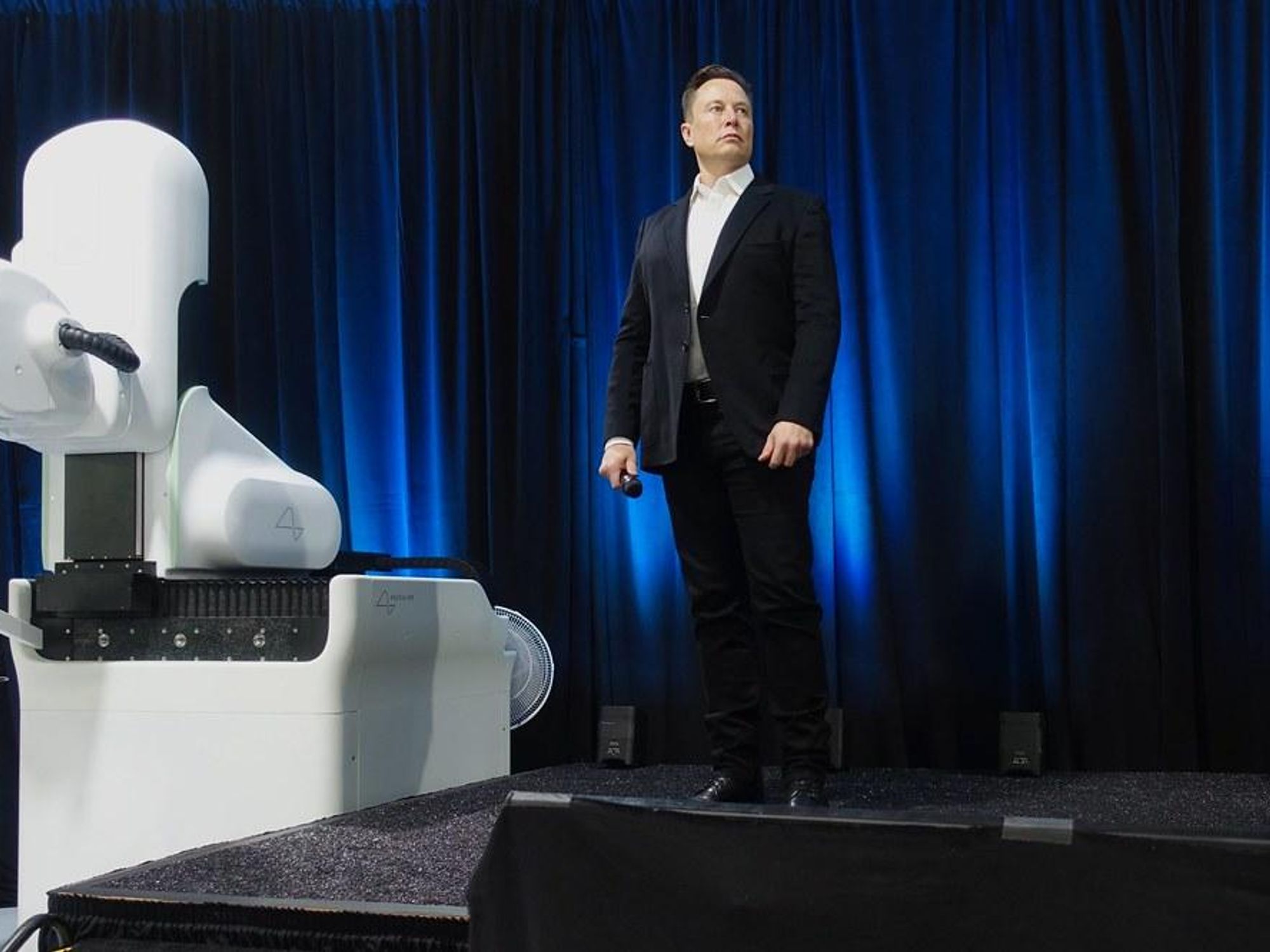The Neuralink Demonstration Proved the Company Really Wants You To Work There
Samson Amore is a reporter for dot.LA. He holds a degree in journalism from Emerson College. Send tips or pitches to samsonamore@dot.la and find him on Twitter @Samsonamore.

Elon Musk’s controversial, experimental brain computing company Neuralink held a live demonstration last night, aimed at proving to the world that its technology is safe and close to viable human trials.
During the event, Musk made the ambitious promise that Neuralink’s brain chip tech could begin human clinical trials as soon as next year. But their tech is pending vital approval from the Food and Drug Administration, and Neuralink employees noted during the demo that the government watchdog still has a lot of questions about safety.
Behind the lengthy explanations of how Neuralink’s various technologies (including surgical robots and electrode implants) work, there was also another message: Neuralink really, really wants you to work there.
"I want to emphasize, again that the primary purpose of this update is recruiting," Musk himself said during the demo.
Though based in Fremont, it’s likely there’s no shortage of SoCal-based applicants looking to join the Musk outfit, especially given the array of local universities here with strong engineering and neuroscience majors that continue to churn out well-qualified young graduates – including USC and UCLA, for starters.
Given Musk’s adversity to remote work it doesn’t appear Neuralink offers work-from-home options, though its postings do advertise commuter benefits. Plus, Neuralink has raised $373 million since its 2016 launch, so it has some cash reserved for team-building.
Similar to past Neuralink events – and many of these types of “show and tell” affairs in the tech industry – the event was by and large a spiffed-up recruiting drive. Neuralink’s careers page was flashed across the screen numerous times during the two-hour-plus presentation. The company is currently hiring for a number of roles in both Fremont and Austin, where many of Musk’s other ventures including SpaceX are expanding their presence and where Musk himself now lives.
Currently, upwards of 60 job listings are live on Neuralink’s job page. Most of them are openings for engineers in software and “brain interfaces,” including for surgery and robotics engineering technicians. But the company’s also hiring a veterinarian, electricians, and a clinical research coordinator as it ramps up its efforts to conduct trials on beings other than monkeys.
Interestingly, during Wednesday’s event Musk said employees don’t need to know how the brain functions, or a lot about biology if they want to work at the, uh, brain biology company. “When you break down the skills that are needed to make Neuralink work, it’s actually many of the same skills that are required to make a smartwatch or modern phone work,” Musk quipped during the event.
So is Neuralink having a hard time filling these roles? While it’s not unusual that the company has every intention of hiring more staff given Musk’s ambitious goals for human testing by 2023, some prior applicants have noted that Neuralink’s rigorous vetting process might be gumming up the hiring process.
Breck Yunits, a Long Beach-based software engineer who previously worked at Microsoft, said in a recent Neuralink Reddit “ask me anything” (AMA) thread that he went through five interviews at Neuralink before he was denied a job as a software engineer for web apps.
“I've never had so many interviews,” Yunits said when asked if the intense interview experience was standard in his industry. “But I'm not complaining — these people were brilliant and so fun to get to meet them.”
Like its presentations, Neuralink employees are keen to tell prospective employees that they could end up working for a company that could change disabled peoples’ lives. Something Yunits said all the employees mentioned as a goal when he was undergoing his application process. This has, after all been Musk’s alleged target from the start; to help people with paralysis or physical disabilities overcome their physical obstacles by stimulating their brain directly with electrodes.
Yunits added in his AMA that the process,“got extremely technical but only about the things I'd actually be building and my prior work.” Yunits did however note that he was limited in what he could comment on, since he signed an NDA prior to the interview process and added that he didn’t plan to re-apply.
So is Neuralink having difficulty staffing up? As one user in the Neuralink Discord server noted, it’s always harder to recruit highly skilled workers: “I guess if they are looking for people who are very skilled, it might be hard. These [events] are always a recruiting tool anyway.”
- 'The Fear Has Significantly Diminished': UCLA Neuroscientists Discuss Next Steps on Brain Chips ›
- From Twitter to Neuralink and Solar City: A Rundown of Elon Musk's Many Businesses ›
Samson Amore is a reporter for dot.LA. He holds a degree in journalism from Emerson College. Send tips or pitches to samsonamore@dot.la and find him on Twitter @Samsonamore.



 Image Source: Revel
Image Source: Revel
